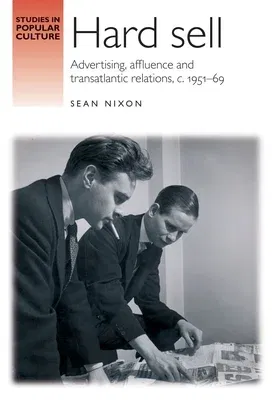How did advertising shape growing popular prosperity in the 1950s and
60s? What were the images of domesticity and modern living which it
promoted? Focusing on advertising's relationship to the mass market
housewife, Hard sell shows how advertising promoted new standards of
material comfort in the selling of a range of everyday consumer goods
and, in the process, generalised a cross-class image of the 'modern
housewife' across the new medium of television. Nixon shows how the
practices through which British advertising understood and represented
the 'modern housewife' and domestic consumption were influenced by
American advertising and commercial culture. In drawing out these
trans-Atlantic influences, Hard sell challenges the way critics and
historians have often understood Anglo-American relations. It shows how
American influences across a range of areas of advertising practice,
including the development of television advertising, were not only a
source of inspiration, but also were adapted and reworked to more
effectively speak to the British consumer. Through detailed studies of
advertising, the practices of advertising agencies and the public
debates that shaped their reception, Hard sell offers a major new
analysis of advertising in the decades of post-war affluence and the
Anglo-American exchanges that shaped advertising's contribution to this
period of social change. It marks a significant contribution to debates
within contemporary British history, the sociology of affluence and to
studies of consumer and marketing history.

